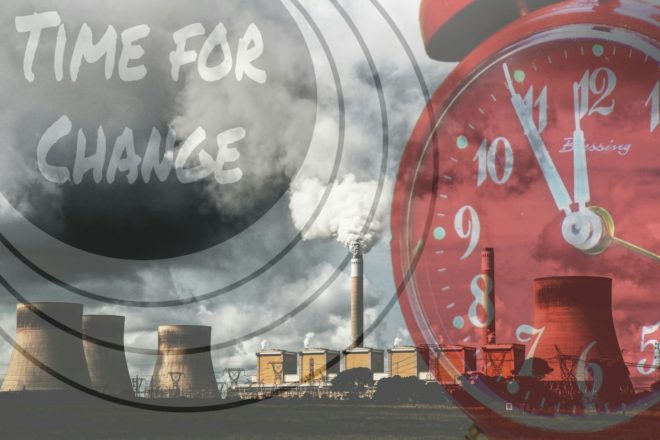Cancer is a topic that brings up all kinds of feelings for me, from sadness, to fear, anger, regret and more. Amongst other things, I lost my mother to breast cancer a number of years ago.
What I want to share with you here are a couple of very powerful but simple interventions you can bring to the fore right now to improve your own chances of staying ahead of cancer.
If you’re not already convinced that this is a fight worth having, I want you to consider the fact that, according to the World Health Organisation, cancer is now the world’s number one killer, having surpassed heart disease in 2011.
It strikes me as paradoxical that we live in a time when there has never been more known about this disease and, therefore, if logic were to prevail, more opportunities to avoid it.
So given that cancer has shot ahead of heart disease, I want to share what I think is actually going on here.
My sense of this is that many people default to the path of least resistance because there is so much conflicting information out there. The path of least resistance, essentially, involves hoping for the best.
And if the best doesn’t pan out, then the path of least resistance involves jumping on to the conveyor belt offered by the ‘cut, poison, and burn’ approach of conventional medicine.
Now don’t get me wrong, there are definitely times when I would take myself to a conventional doctor. In fact that’s exactly what I did when I recently broke my ankle. But there are other times when I would definitely cast the net further afield.
Needless to say, cancer is one of those times. I feel this way because I see the intersection of the interests of patients, doctors, pharmaceutical companies, and governments as being highly problematic. This issue is a whole can of worms that I don’t have space to fully open up here.
So for now what I’m going to focus on is empowering you to take proactive steps to minimise the likelihood of ever having to make decisions around survival in the face of a cancer diagnosis.
Firstly, I invite you to take a look at what you can do in relation to the food you eat. I know that people who subscribe to a magazine like this will already be aware of the benefits of eating an antioxidant rich, plant based, whole food diet.
So I’m going to drill-down into the ‘why’ of this proposition to provide added motivation for you to be hyper-vigilant in relation to what you put into your mouth.
Basically, it just makes sense to maintain a diet that doesn’t result in your body becoming excessively acidic because it’s well known now that cancer cannot survive in an alkaline environment.
The problem is though, that most of the food that most people base their diets on these days, does result in their body becoming excessively acidic. The kinds of foods I’m talking about here are the common staples like meat, grains, and sugar.
Not to mention the way the processing methods used to increase the shelf-life, economy of scale, and addictiveness of the products on supermarket shelves, turns otherwise healthy ingredients into unhealthy food.
And it’s not only the chemical additives that are problematic here, but also the processing methods themselves that result in the production of advanced glycation end products or AGEs.
These toxic substances lead to oxidative damage to our cells and, therefore, accelerate the aging process, and the development or worsening of many degenerative diseases.
One of the core principles the human body operates on is homeostasis. To this end, when our blood starts to become too acidic, a process to transfer the acidic substances into our cells kicks in to ensure that a healthy level of alkalinity is maintained in our blood.
The problem is that this in turn causes our cells to become too acidic and therefore toxic, which leaves them vulnerable to damage at all levels, including at the level of our DNA.
This is a big problem because the resulting ‘abnormal’ cells are the ones that grow indefinitely and without order. This is essentially how cancer plays out in the body.
Food can be either friend or foe in relation to our quest to stay well. Gerson Therapy for example is a detoxifying nutritional program that many cancer survivors attribute their survival to.
It’s based on the understanding that the body can be cured by removing toxins, boosting the immune system, and replacing excessive salt in the cells with potassium.
For this reason, Gerson Therapy involves a strict diet, dietary supplementation, and enemas. This is something I personally would look into myself, if I ever had to weigh-up my options in relation to a cancer diagnosis.
What I want to touch on briefly now, before I wrap this article up, is the impact of external environmental toxins known as xenoestrogens. The bottom line here is that you should limit your exposure to these substances to the very best of your ability at all times.
I say ‘to the very best of your ability’, because these man-made synthetic chemicals that mimic the action of the female sex hormone estrogen are in all kinds of places that you might never have expected to find dangerous substances.
For example, xenoestrogens can be found in the building products used to construct the houses we live in, and the offices we work in, as well as being in some brands of carpets, furniture, cosmetics, cleaning products, feminine hygiene products, plastics, tap water, electronic devises, and the list goes on.
So given that our body needs to exist in a state of homeostasis, and given that our hormones in particular rely on balance to do their job well, adding chemical estrogens into our system can’t possibly be a good idea.
Hormones are incredibly potent natural chemicals that can work in a concentration as small as one part per trillion. In other words, it only takes one molecule of a hormone in a trillion molecules of blood to have an effect.
The scary thing is that synthetic chemicals are defined as being at ‘safe’ levels in terms of parts per million by governments in many first world countries.
This is a problem because these ‘safe’ levels could in fact result in xenoestrogens being introduced into your body at a concentration thousands of times higher than your natural hormones work at.
We’re wading into highly contested territory here, and you might have heard arguments to the effect that these toxic chemicals aren’t a problem because they’re easily flushed out of the body. But clearly the truth is not nearly as simple or as comfortable as this.
The fact of the matter is that these chemical toxins are stored in our fat. So people with an excess of visceral fat in particular are literally bathing their organs in a sea of pollution if they’re exposed to a heavy load of xenoestrogens on a daily basis.
The female breast is an obvious area of fatty tissue that’s worth considering here. It seems pretty clear that environmental xenoestrogens are contributing towards the staggering statistic that one in eight women will experience breast cancer at some time in their life.
So here’s what you need to do to minimise your exposure to xenoestrogens.
- Avoid synthetic hormone supplements and oral contraceptives.
- Avoid plastic and plasticisers containing BPA, Phthalates, DEHP, a PVC.
- Avoid preservatives and parabens used in foods and cosmetics.
- Avoid pesticides.
- Avoid unfiltered tap water.
You can find much more information on living a holistic lifestyle in these free magazines and on our YouTube channel.

Jane Turner – Woman’s Health Expert






